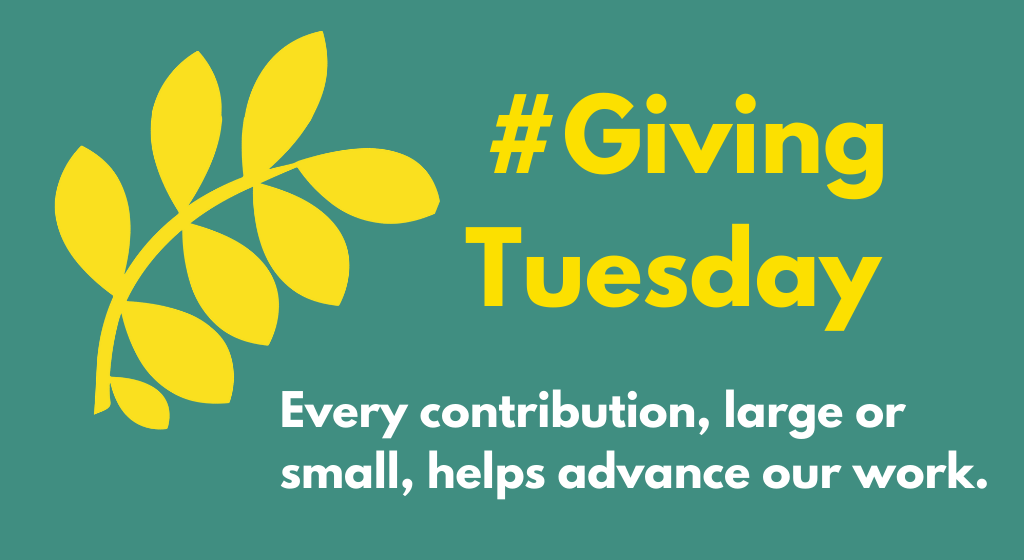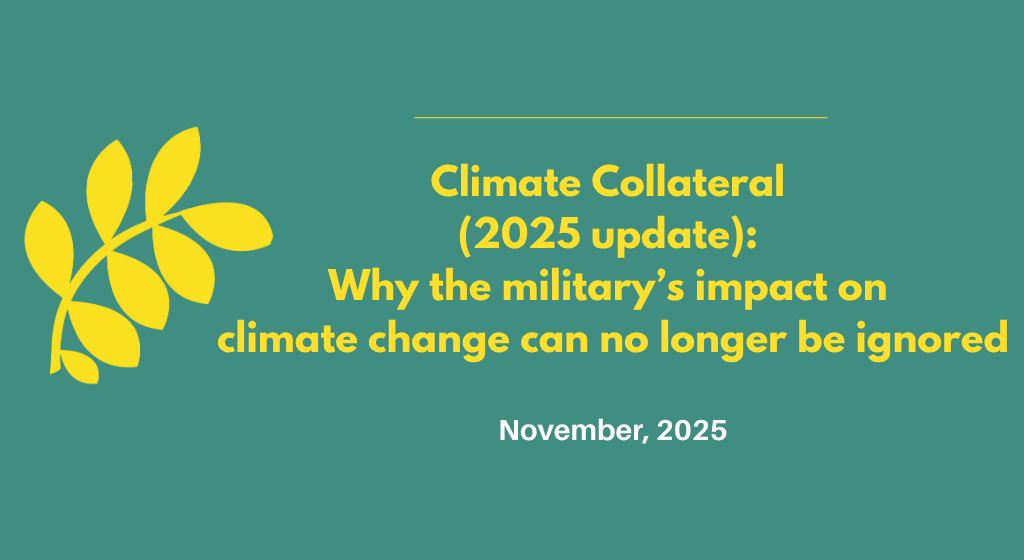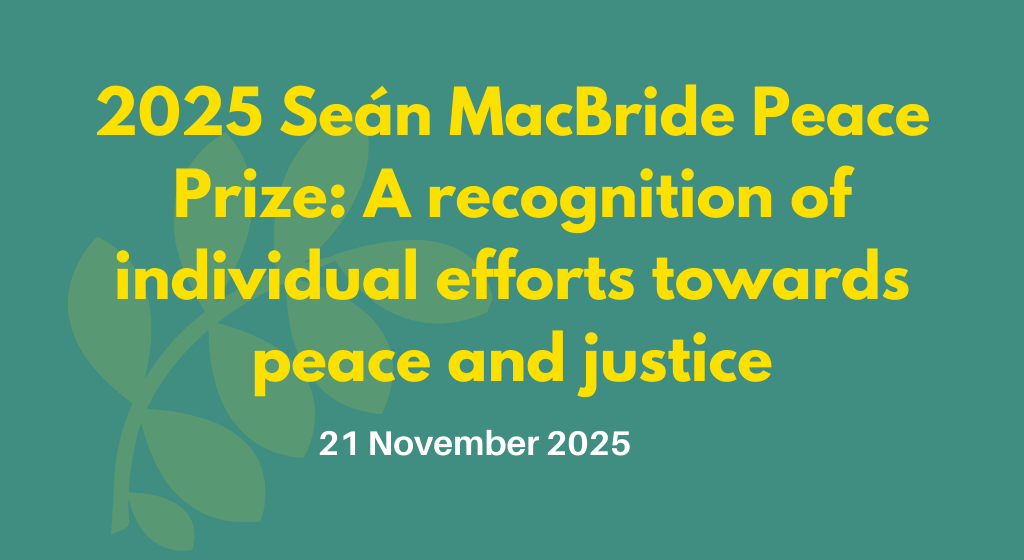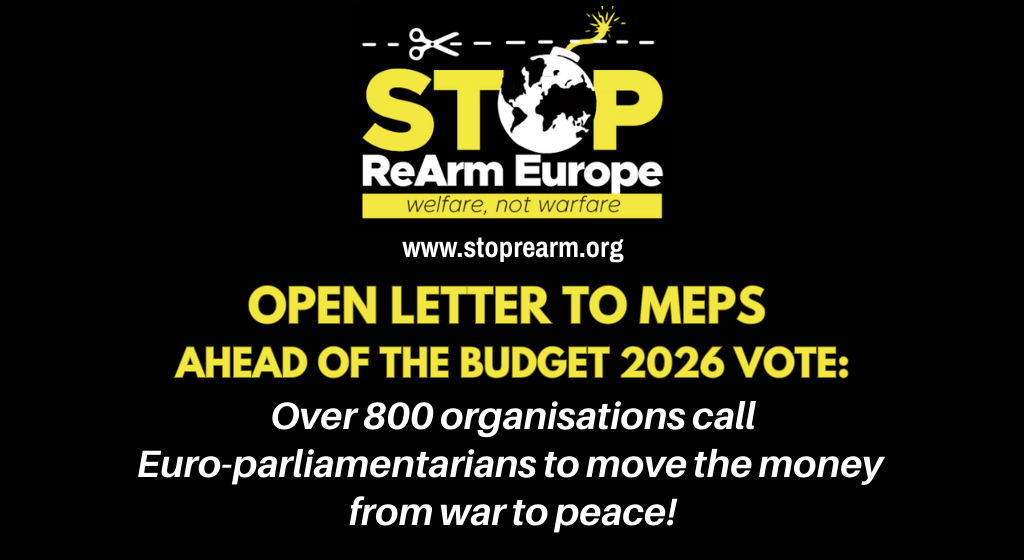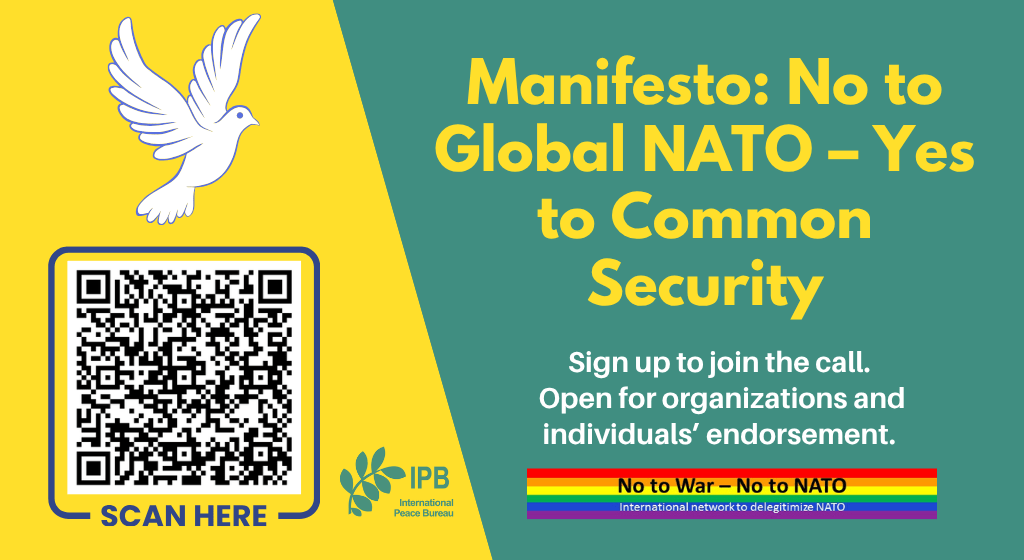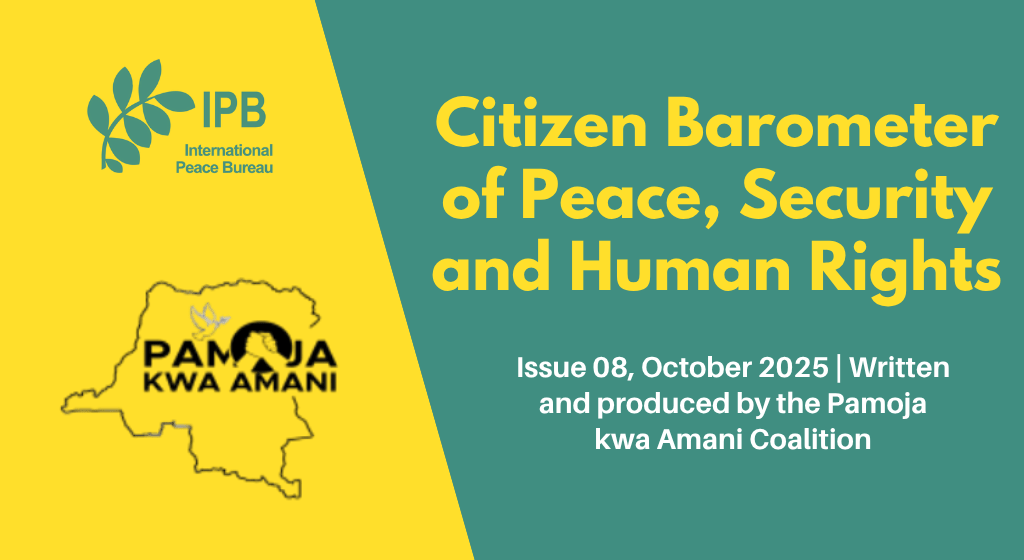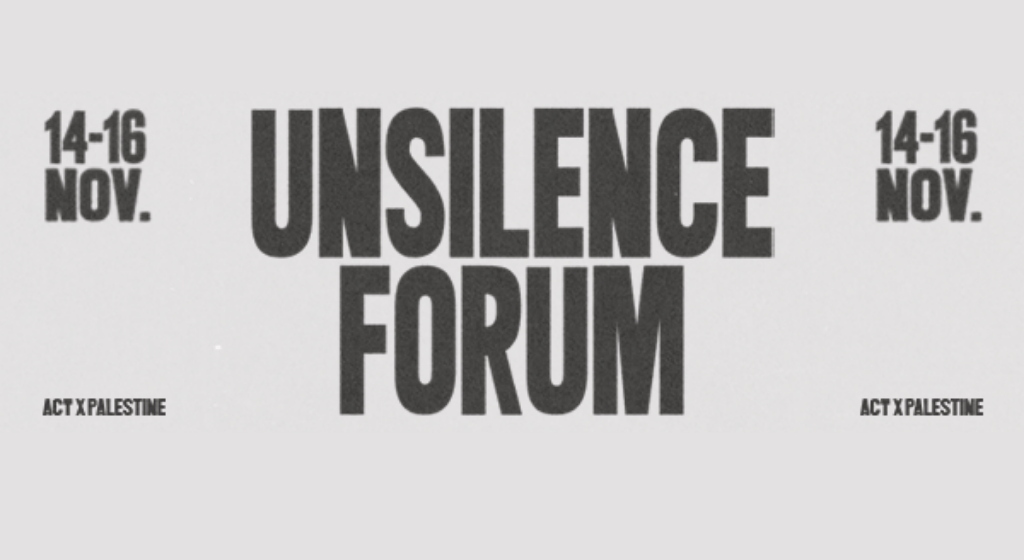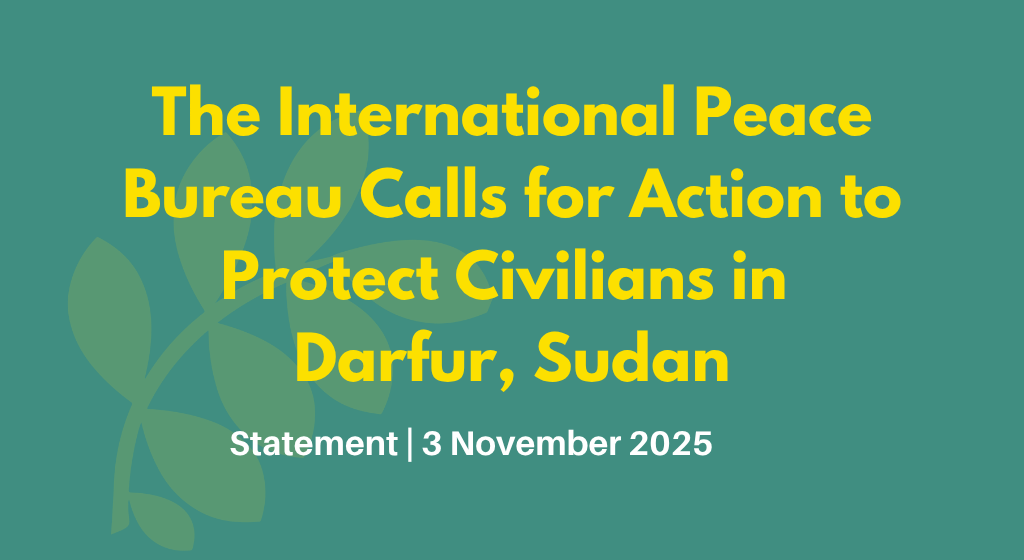This #GivingTuesday, choose to become part of a global generosity movement by joining our efforts in creating a peaceful, just and sustainable world.
Continue reading “This Giving Tuesday donate for peace by supporting IPB!”News
Free Marwan: A Call for Freedom
November 29th is the International Day of Solidarity with the Palestinian People, and on this day, we are calling on organisations, solidarity movements, and community groups everywhere to raise their voices and demand the Release of Marwan Barghouti.
The International Campaign to Free Marwan Barghouti is providing files to print posters, flags and stickers to all groups wanting to join the call for Marwan’s release.
Continue reading “Free Marwan: A Call for Freedom”Climate Collateral (2025 update): Why the military’s impact on climate change can no longer be ignored
The Core Conflict: Military Spending vs. Climate Action
The global arms race is overshadowing the urgent struggle for climate justice, even as temperatures hit record highs. In 2024, global military expenditure surpassed $2.7 trillion, a sum that fuels significant greenhouse gas emissions, drains essential resources from climate initiatives, and escalates the geopolitical tensions that hinder multilateral climate cooperation. A mere 5% reallocation of this military spending would yield $135 billion—more than enough to meet the long-overdue $100 billion global climate finance target.
Continue reading “Climate Collateral (2025 update): Why the military’s impact on climate change can no longer be ignored”2025 Seán MacBride Peace Prize: A recognition of individual efforts towards peace and justice
21 November 2025, Berlin, Germany
The Seán MacBride Peace Prize, named after the Nobel Peace Laureate and IPB co-founder Seán MacBride, honors individuals and organizations who conduct outstanding work for peace, disarmament, and human rights.
Continue reading “2025 Seán MacBride Peace Prize: A recognition of individual efforts towards peace and justice”Open Letter to MEPs ahead of the Budget 2026 vote by the StopRearmEurope Campaign
20 November 2025 – OPEN LETTER to the Members of the European Parliament (MEPs)
Over 800 organisations call Euro-parliamentarians to move the money from war to peace!
The StopReArm Europe (SRE) Campaign — of which IPB is one of the initiators and which is now supported by more than 800 organizations across Europe and beyond, with numbers still growing — has drafted an open letter to Members of the European Parliament, urging them to take a stand for peace during next week’s budget vote.
You can read and download the full letter on www.stoprearm.org, here: SRE Open Letter to MEPs 2025, and below.
Translations into other languages will also be published below and on the official website as soon as they are ready (disclaimer: only the original English version is authoritative).
- Spanish Translation – CARTA ABIERTA a los Europarlamentarios 2025
- Italian Translation – LETTERA APERTA ai parlamentari europei 2025 (also on the SRE Italia website)
- Romanian Translation – SCRISOARE DESCHISĂ către europarlamentari 2025
- French Translation – LETTRE OUVERTE aux députés européens 2025
- German Translation – OFFENER BRIEF an Europaabgeordnete
- Dutch Translation – Open brief aan Europarlementariërs
If you would also like to receive the letter by email, together with additional information, you can still sign the SRE call on the website www.stoprearm.org and directly support our joint effort!
For any inquiries, you can also reach out to the coordination group using the following email address: contact@stoprearm.org.
Manifesto: No to Global NATO – Yes to Common Security
NATO is an increasing obstacle to achieving world peace. It is no longer an organization confined to the North Atlantic: it is the world’s largest military alliance, with allies and partners in Asia, Africa and Latin America. Since the end of the Cold War, NATO has reinvented itself as a tool for military action, psychological warfare, worldwide military and political interventions, and accessing resources and markets; it often claims to undertake these actions on behalf of the “international community”. With its partnerships and joint operations, it is a vehicle for the US strategic goal of global dominance; reinforced by military bases on all continents, it bypasses the United Nations and the system of international law, accelerating militarization, escalating arms expenditures and fueling arms races.
Continue reading “Manifesto: No to Global NATO – Yes to Common Security”Citizen Barometer of Peace, Security and Human Rights News
Citizen Barometer of Peace, Security and Human Rights (Issue 08, October 2025) | Written and produced by the Pamoja kwa Amani Coalition
This issue of the Citizen Barometer of Peace, Security and Human Rights (October 2025) by the Pamoja kwa Amani Coalition presents a grim assessment of the deteriorating situation in eastern Democratic Republic of Congo (DRC), despite ongoing international peace processes.
The report highlights the escalating conflict between the Congolese army (FARDC), their Wazalendo allies, and the Rwandan-backed AFC-M23 rebels. A central case study is the sudden and controversial closure of the Lomera gold mining site in South Kivu by AFC-M23 in August 2025. This decision has had devastating humanitarian consequences, leaving over 30,000 people destitute, triggering widespread unemployment, increasing insecurity, and leading to human rights abuses, including forced recruitment and summary executions. The Coalition suggests the closure may be linked to plans for large-scale, illicit exploitation by the rebels or foreign interests to fund their war efforts.
The document details widespread ceasefire violations by all parties, with significant civilian casualties and displacement. A table for South Kivu in October 2025 alone records 95 killings, 195 abductions, and 60 recovered corpses, illustrating the severe human cost. The security vacuum has also led to the proliferation of poorly regulated Wazalendo armed groups, which commit serious human rights violations, recruit children, and contribute to general lawlessness.
The report condemns the exploitation of natural resources as a primary driver of the conflict, noting AFC-M23’s control over numerous mining sites. It also raises alarms over the militarization of World Heritage sites like Kahuzi-Biega National Park and the AFC-M23’s imposition of its own administrative systems and visas in controlled areas, seen as steps towards the “balkanization” of the country.
In conclusion, the Coalition argues that current peace agreements are failing due to a lack of binding enforcement. It issues an urgent appeal to US President Donald Trump to apply decisive pressure on the belligerents. It also welcomes the establishment of a UN Commission of Inquiry and calls for international support to ensure justice, end impunity, and achieve a sustainable peace that includes local communities.
4Days4Peace in Barcelona
4Days4Peace – Barcelona, October 23–26, 2025
Organized by the International Peace Bureau (IPB) and the Centre Delàs d’Estudis per la Pau
From October 23 to 26, 2025, Barcelona hosted 4 Days 4 Peace, a series of events co-organized by the Centre Delàs d’Estudis per la Pau and the International Peace Bureau (IPB), with the support of the Barcelona City Council. The gathering brought together peace builders, researchers, and activists from various fields around the world to exchange perspectives, coordinate strategies, and strengthen the global movement for peace and disarmament.
The event opened on Thursday, October 23, with the Centre Delàs Annual Conference 2025, titled “Darkest before dawn. Pacifism in times of genocide and rearmament.” Held at Sala Sandaru, the conference reflected on two years of genocide in Gaza, Western complicity, and the growing normalization of militarism. Participants called for non-violence and alternatives to the policies of rearmament and authoritarianism.
Read more: 4Days4Peace in BarcelonaThe conference featured two main sessions: a dialogue on “Business and Complicity in the Genocide and Occupation of Palestine” with Shir Hever and Maha Abdallah, moderated by Laura Ferre Sanjuan (recording available on YouTube here); and a roundtable on “Rising Militarism and Power Politics in the International Arena” with Katerina Anastasiou, Joseph Gerson, and Corazon Valdez Fabros, moderated by Antonella Di Matteo (recording available on YouTube here).
On Friday, October 24, participants took part in workshops and strategy sessions organized around four thematic areas:
- Global Disarmament and Militarization – the risks of global rearmament and the need for civil society–led disarmament initiatives was addressed. Topics such as the impact of militarization on austerity policies and public welfare, the diversion of resources from social, environmental and next-generation programs, and ethical concerns related to war and genocide where discussed. Initiatives such as GDAMS, StopRearmEurope, the No to NATO network, the 10% for All campaign agreed to build synergies between the campaigns for stronger collective impact and proposed setting a common global mobilization date to unify efforts and increase visibility.
- Geopolitical Shifts and Global Governance Reform – how to strengthen international law, multilateralism, and the UN system to respond to current crises was explored. Proposed future visions included decentralizing global power structures, democratizing global institutions, reforming the UN system and redefining the notion of security. For each of these proposals, the role of IPB was discussed, highlighting the importance of focusing on areas of greatest impact like using IPB’s network to promote peace education, advocacy, and mobilization, facilitating dialogues around Common Security to review and revitalize the concept regionally, strengthening cross-movement cooperation and functioning as a knowledge exchange hub where alternative assessment reports are elaborated, deepening IPB’s distinctive voice.
- Solidarity with Palestine and Peoples Impacted by Militarism Worldwide – coordinating civil society action in solidarity with affected communities in Palestine, Sudan, DRC, Cameroon, Myanmar, and Ukraine was the focus of the workshop. Solidarity platforms, webinars, conferences linking movements across regions, workshops integrating different analyses and investigative journalism efforts exposing violations of human rights were highlighted as examples of current strategic actions. Looking forward, it was suggested that solidarity strategies are framed by decolonial and justice-based lenses that prioritize the following: ensuring solidarity is interactive and grounded in local realities, strengthening the promotion of democratic and peace-oriented initiatives and broadening anti-imperialist analysis, among others.
- Stronger Together: Linking Peace, Climate, Social, and Gender Justice – examining the interconnected nature of the conflicts and global issues we are facing today. Participants highlighted the need to give space to underrepresented voices, bridge generational and regional divides, and remain mindful of power dynamics that can replicate forms of oppression even within peace movements; they also highlighted the gap between state and human security – noting that as the former expands, the latter often declines – and called for peace work rooted in people’s daily realities. Concrete examples included cooperation between U.S. and Russian students through joint photography projects, union engagement for peaceful redistribution and workplace democracy, and cross-movement trust-building between peace and environmental activists. The Helsinki+50 process was recognized as an opportunity to foster East–West and North–South dialogue. The session concluded with a proposal to organize joint actions around Earth Day (April 26).
The weekend of October 25–26 was dedicated to the Triennial Meeting and General Assembly of the International Peace Bureau (IPB), the organization’s highest decision-making body. The event brought together 19 Board and Council members in person from the different regions in the world and 16 Board and Council members online, along with several individual members and external observers who joined both onsite and remotely—bringing the total to over 50 participants. Representatives of member organizations and partner networks engaged in formal and informal discussions, reviewed the progress made since the last Annual Council Meeting in 2024 and the last Triennial in 2022, and contributed to shaping IPB’s strategic direction for the coming years.
During the meeting, 19 new organizational members that had applied in 2025 were formally approved, expanding IPB’s global network to a total of more than 400 organizational members and 450 individual members.
Moreover, the 2025 Annual Report of IPB Activities 2024-2025 was presented:
In addition, five resolutions were adopted:
- Global Governance Reform in a Shifting Geopolitical Landscape
- Building a Common Movement through Cross-Movement Collaboration during Overlapping Crises
- The Urgency of Disarmament Revitalization
- Digitalizing IPB’s Data Management and Expanding Communication Platforms and Budget
- Development of an Advisory Group
The Assembly also approved the financial report for the previous year and adopted the 2026 budget.
4 Days 4 Peace reaffirmed the commitment of IPB and Centre Delàs, as well as all the other participants, to challenge militarization, promote common security, and strengthen solidarity among global peace movements working toward a just and sustainable future.
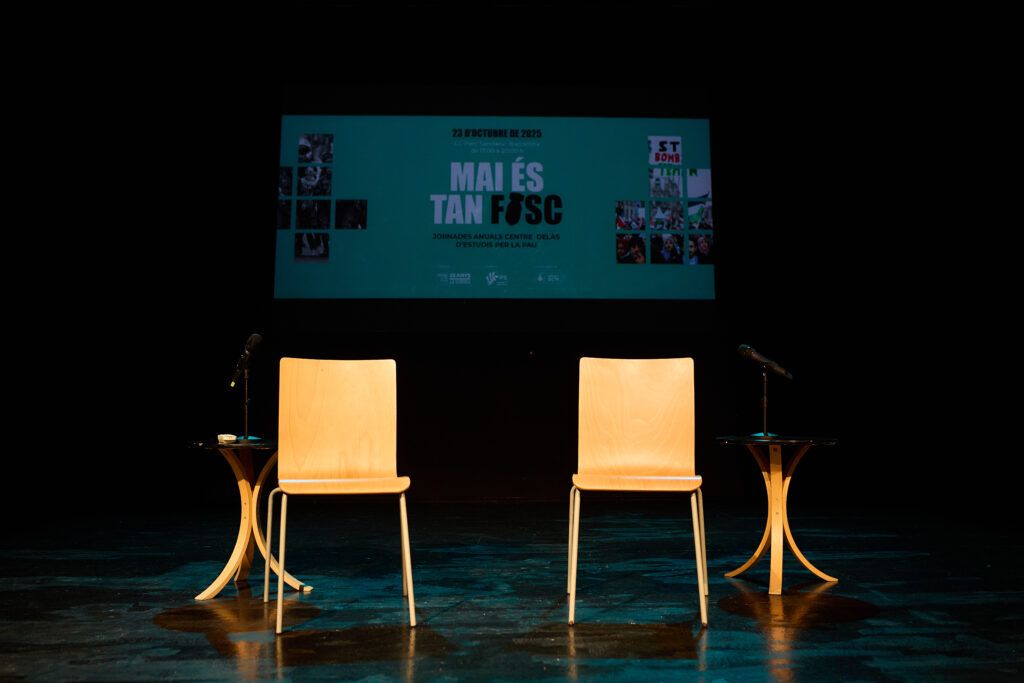
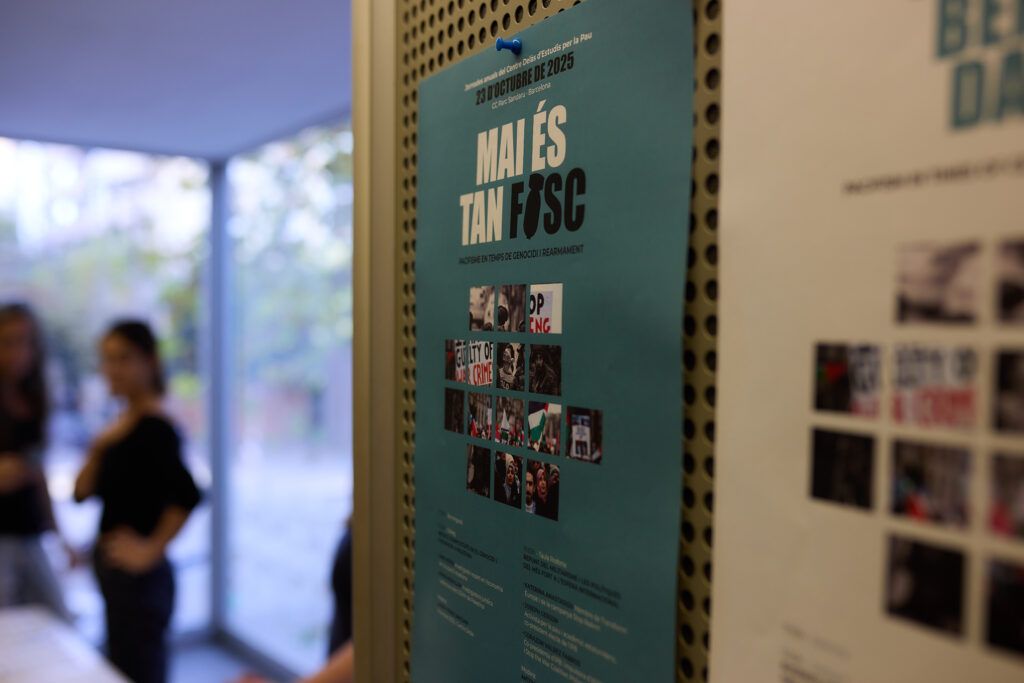

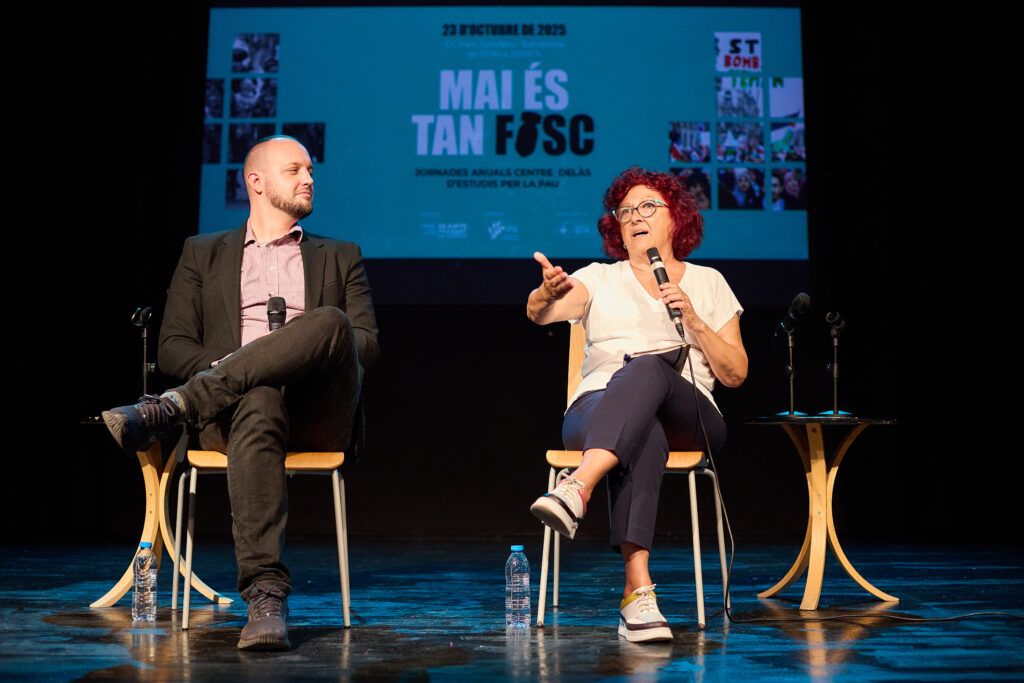
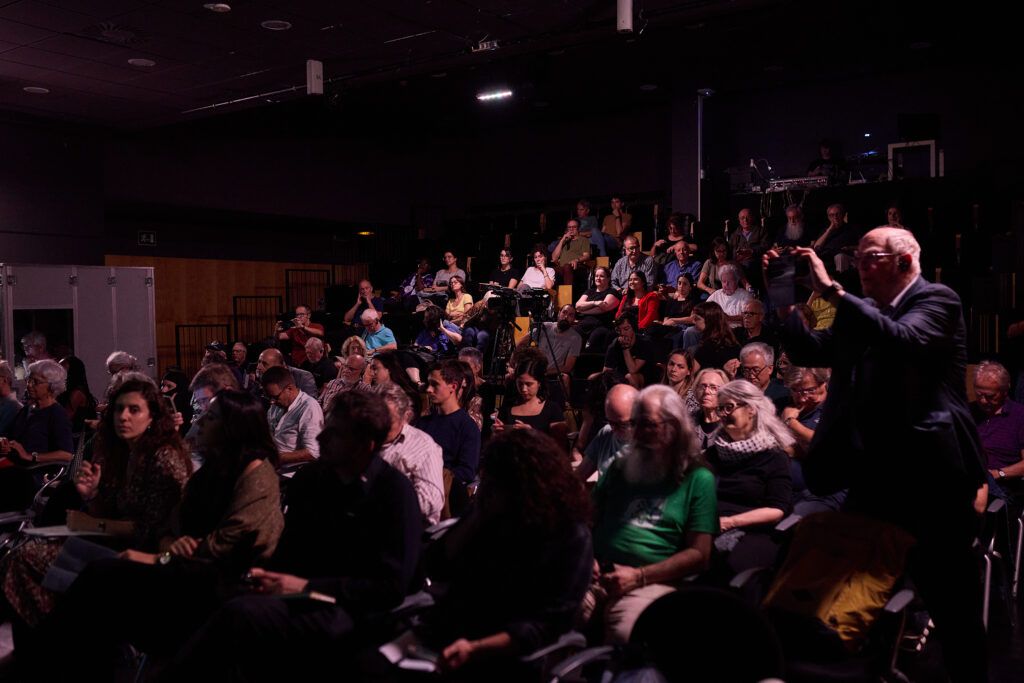

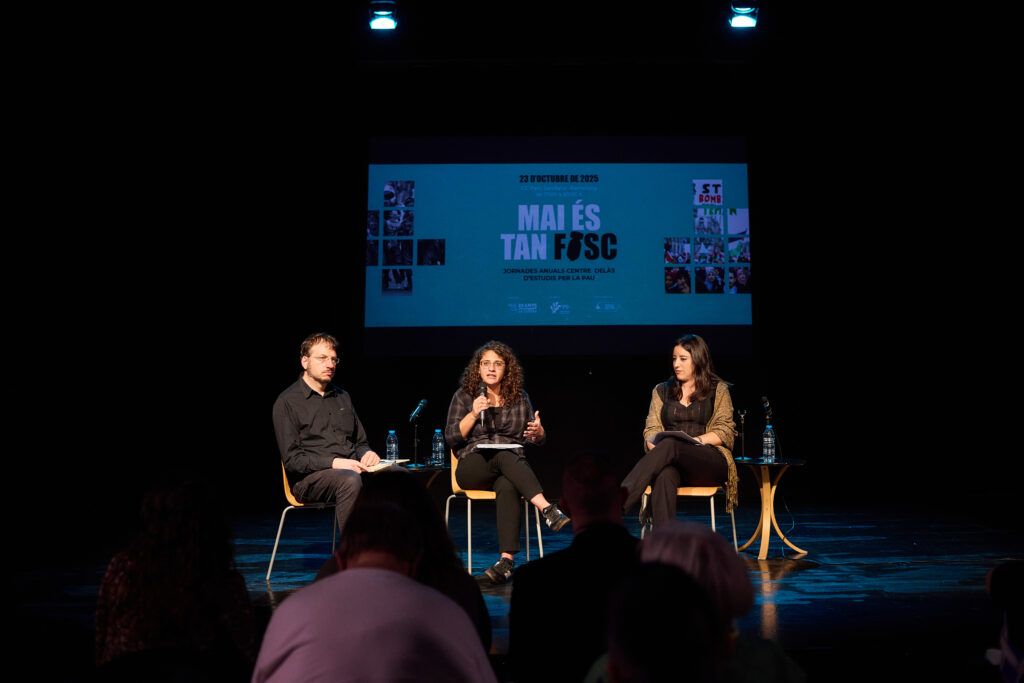
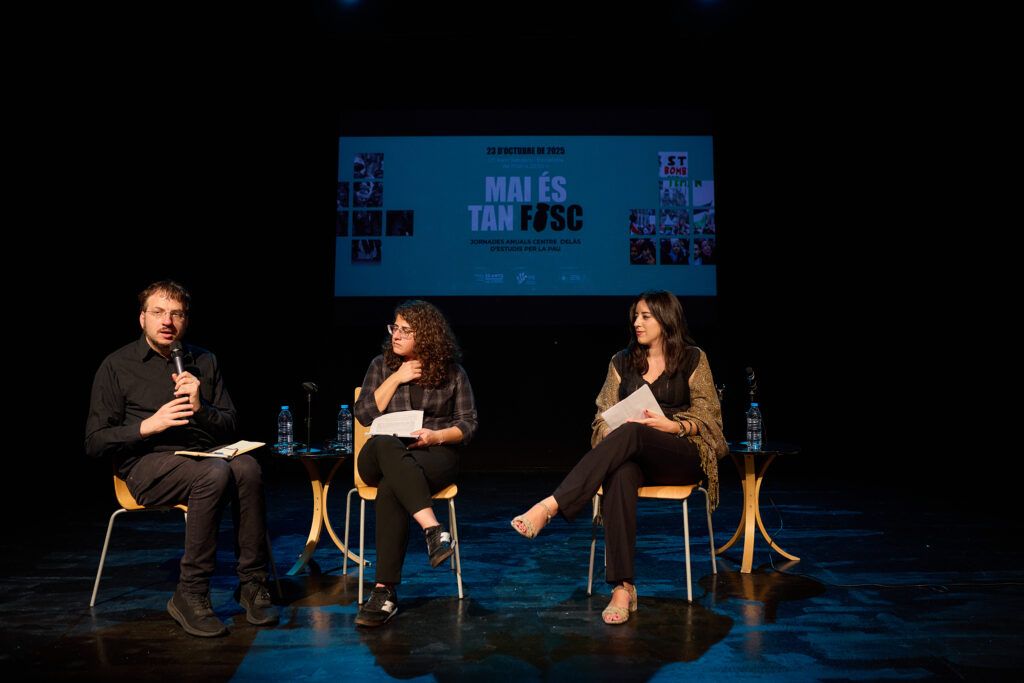
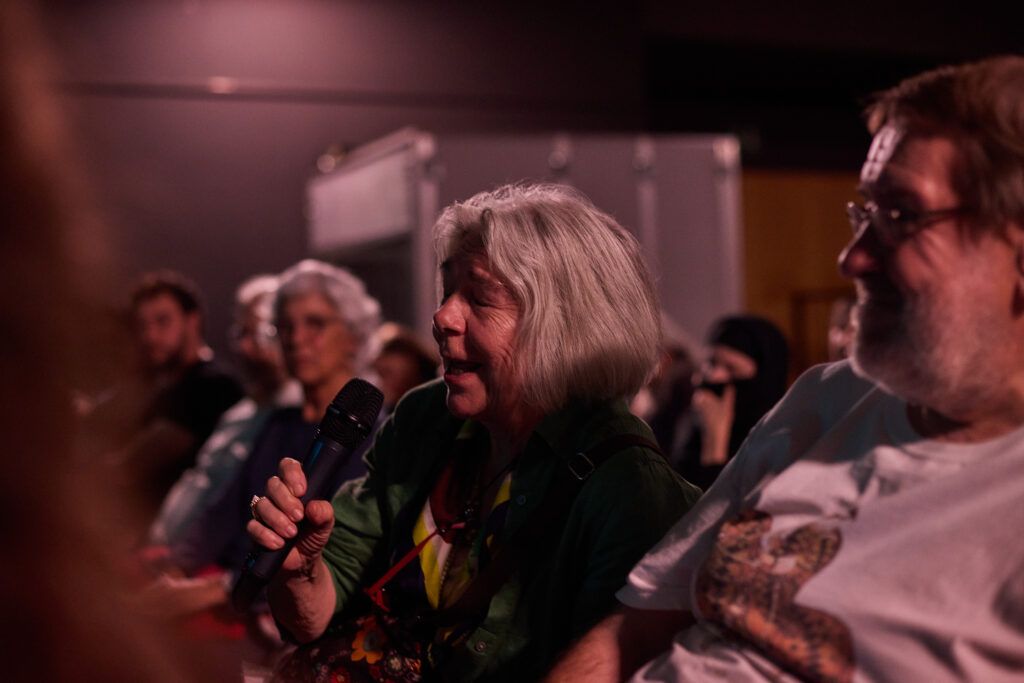
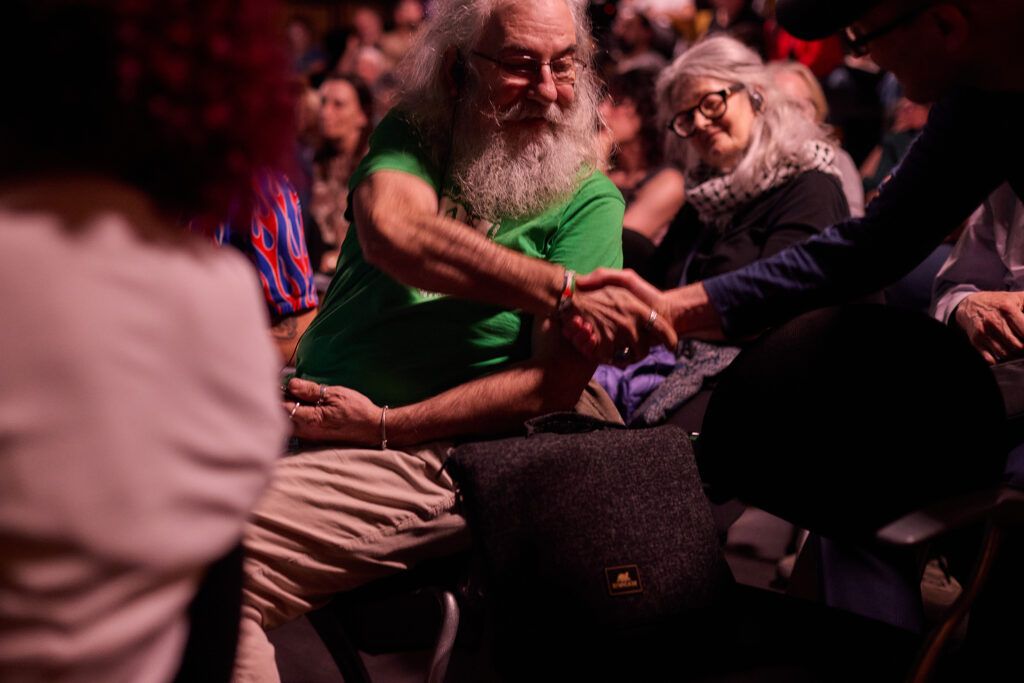
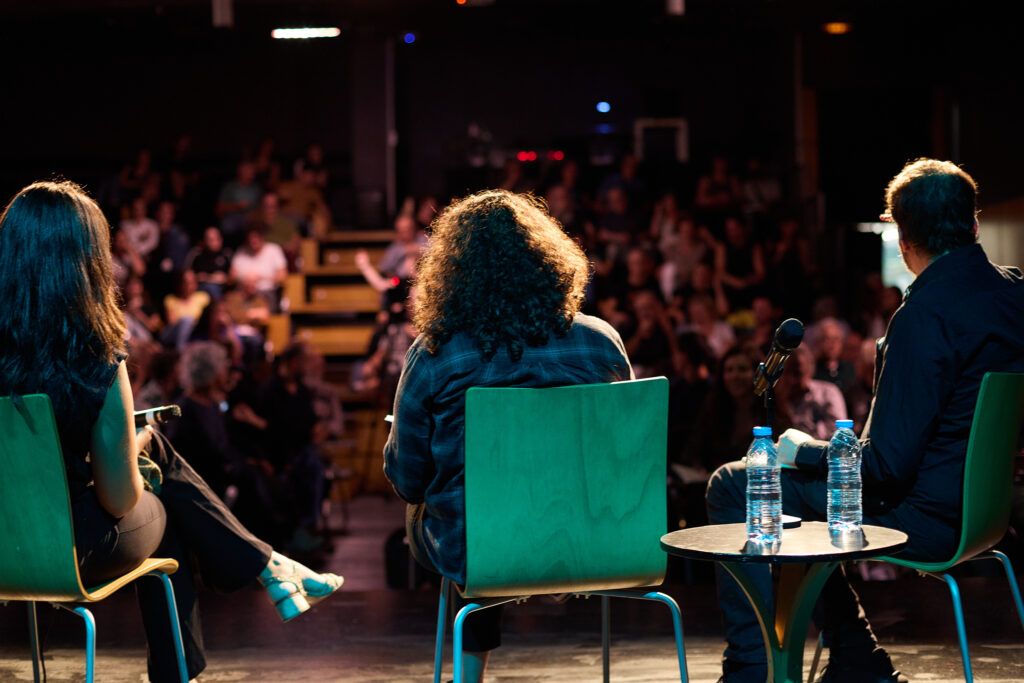
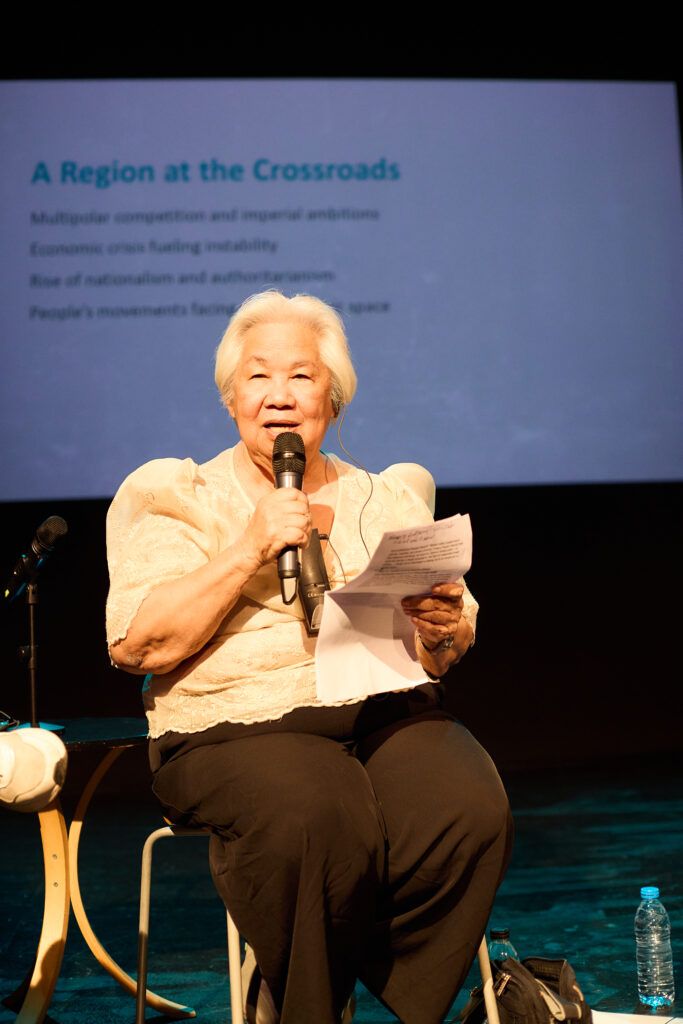
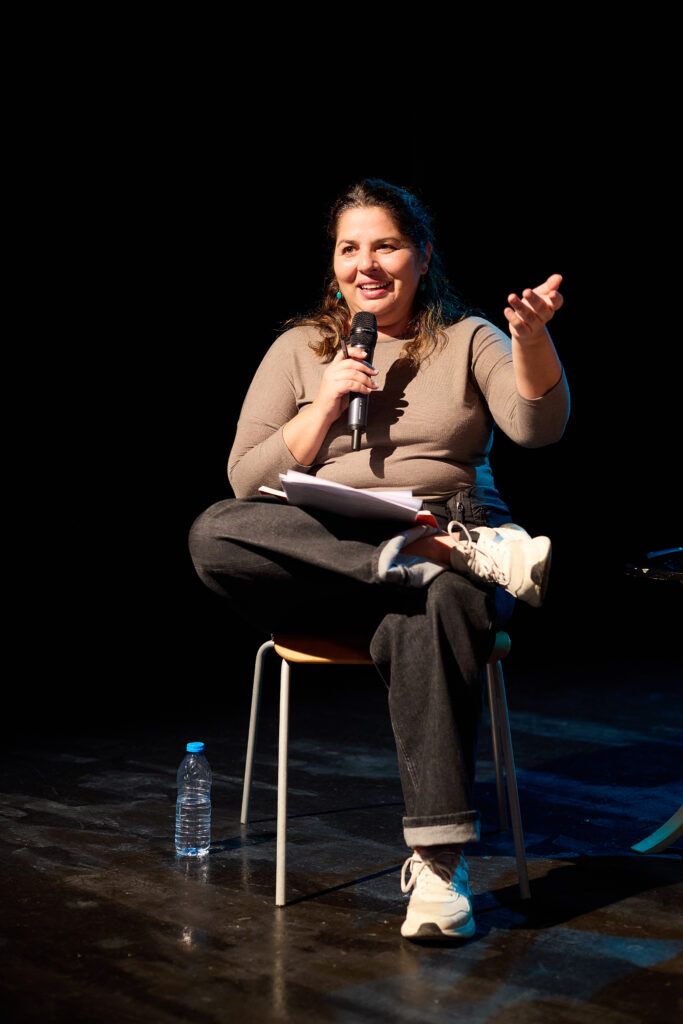
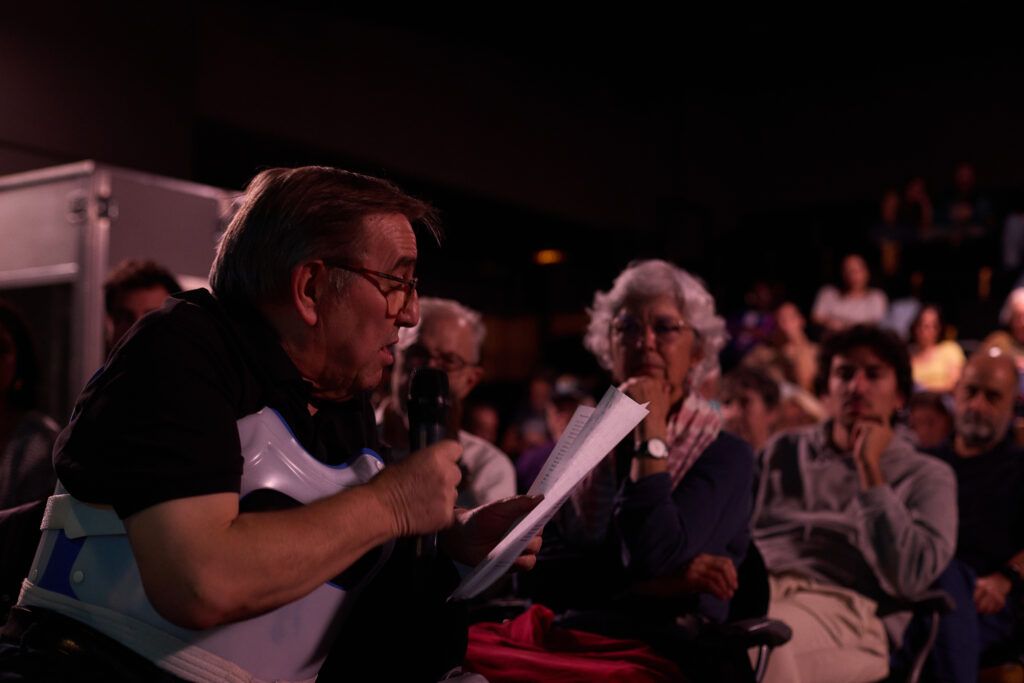
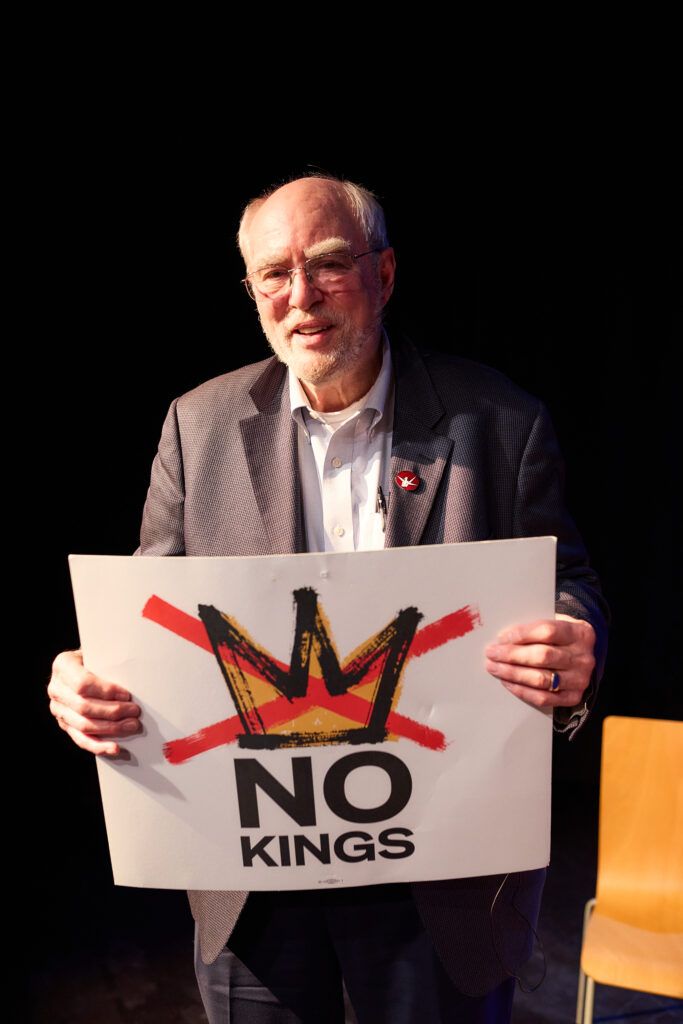

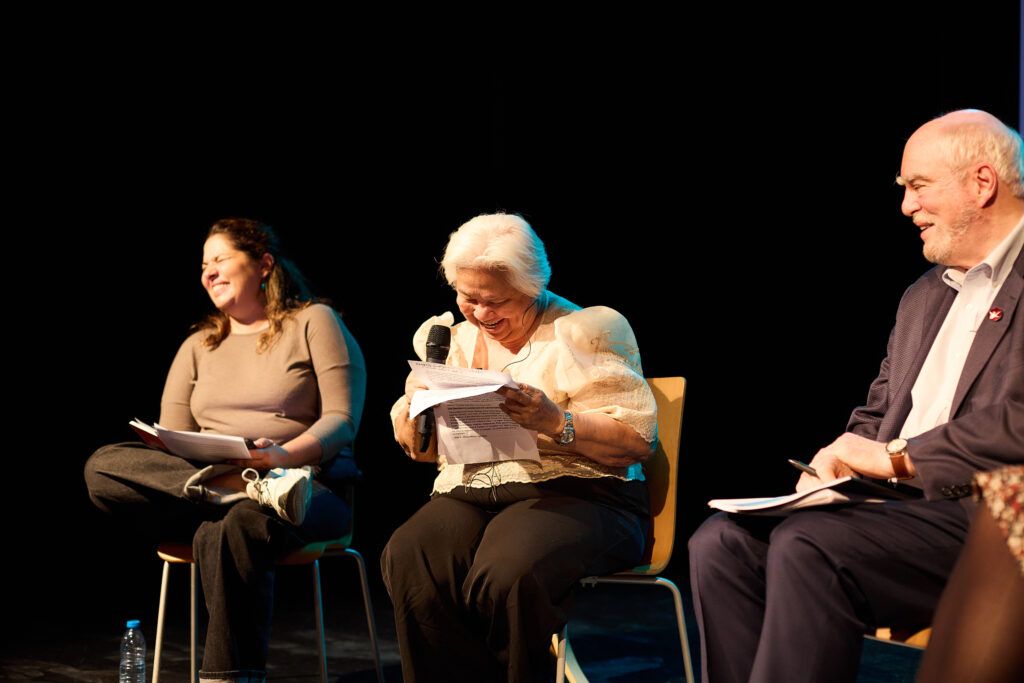
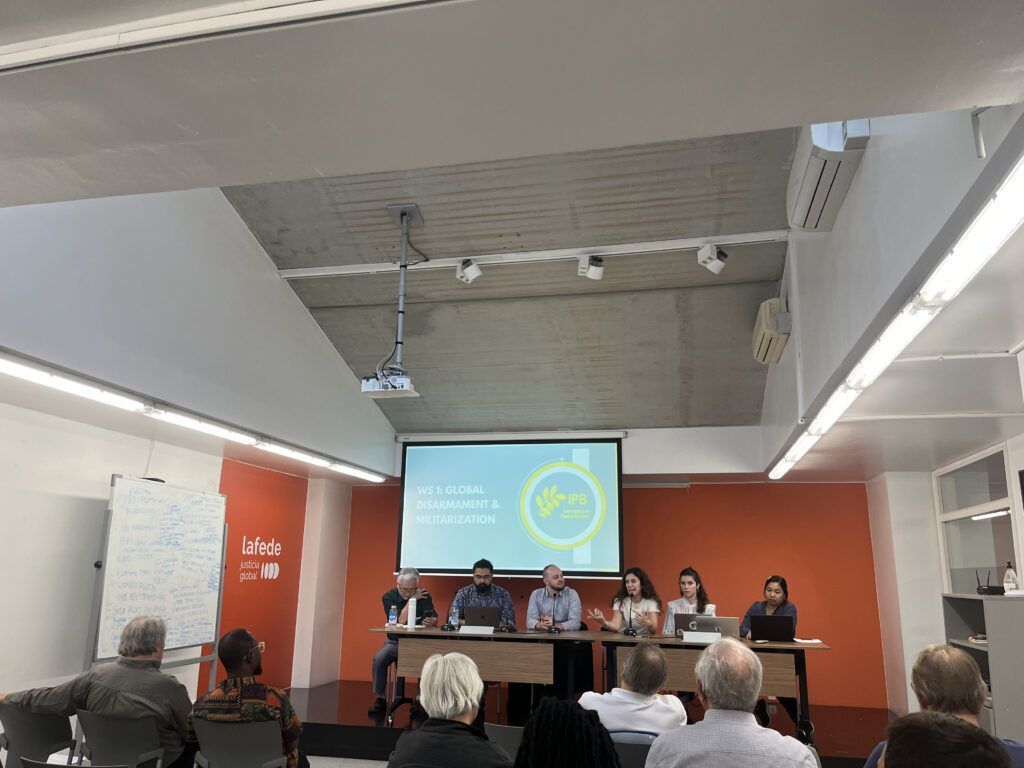

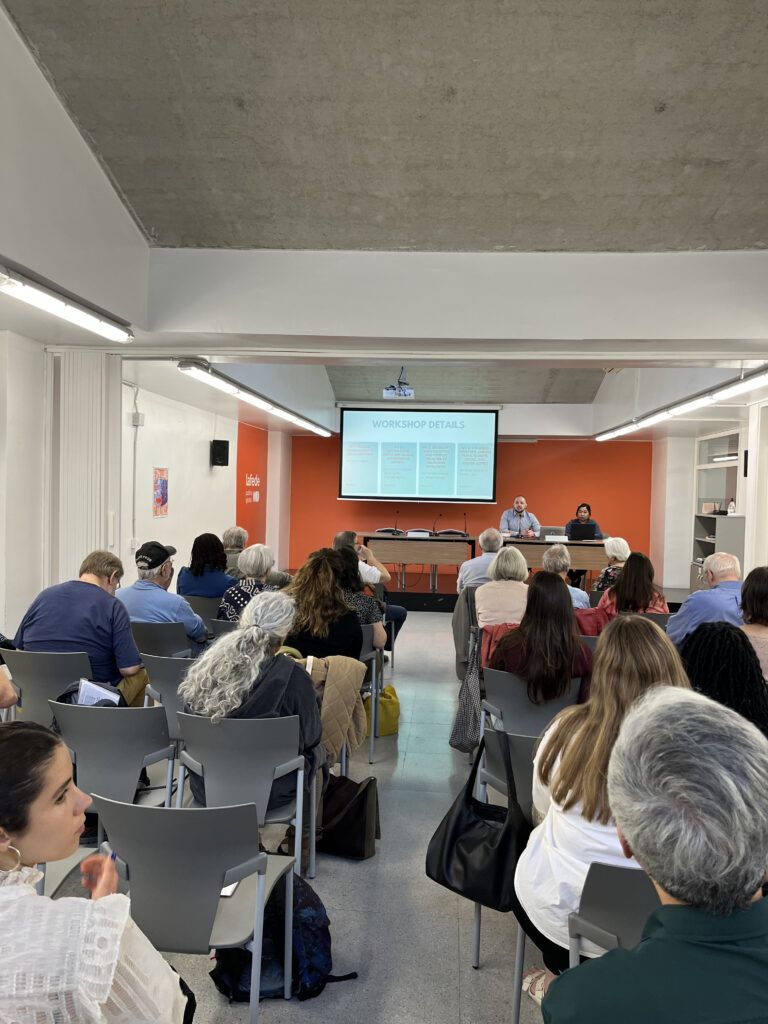
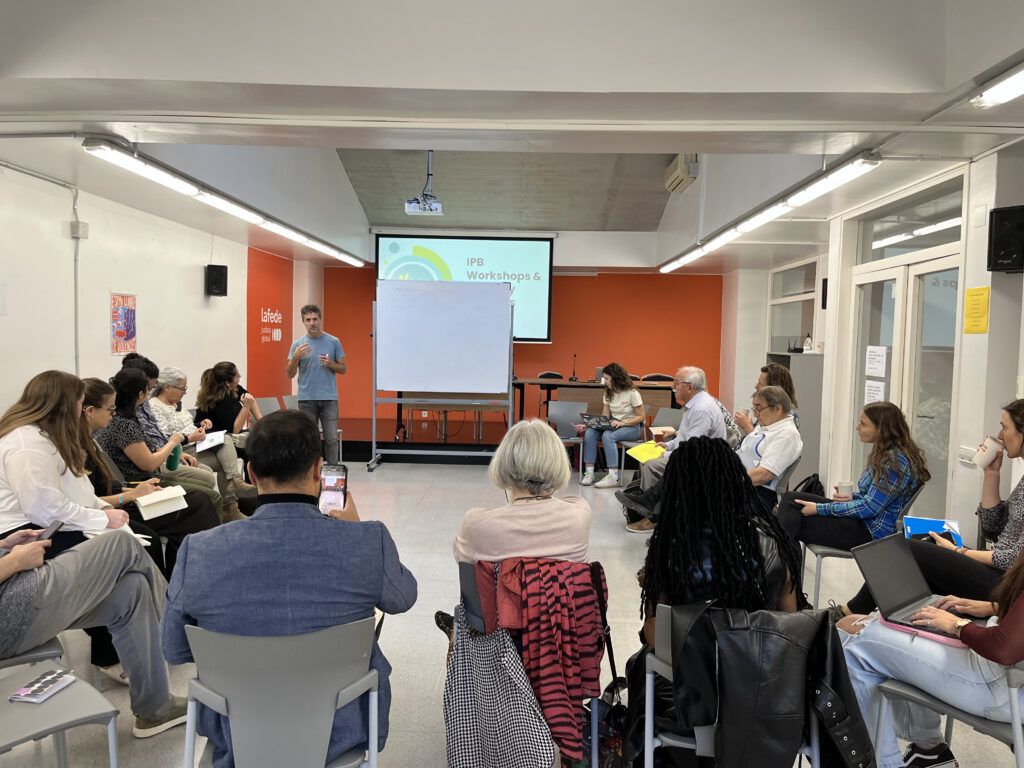

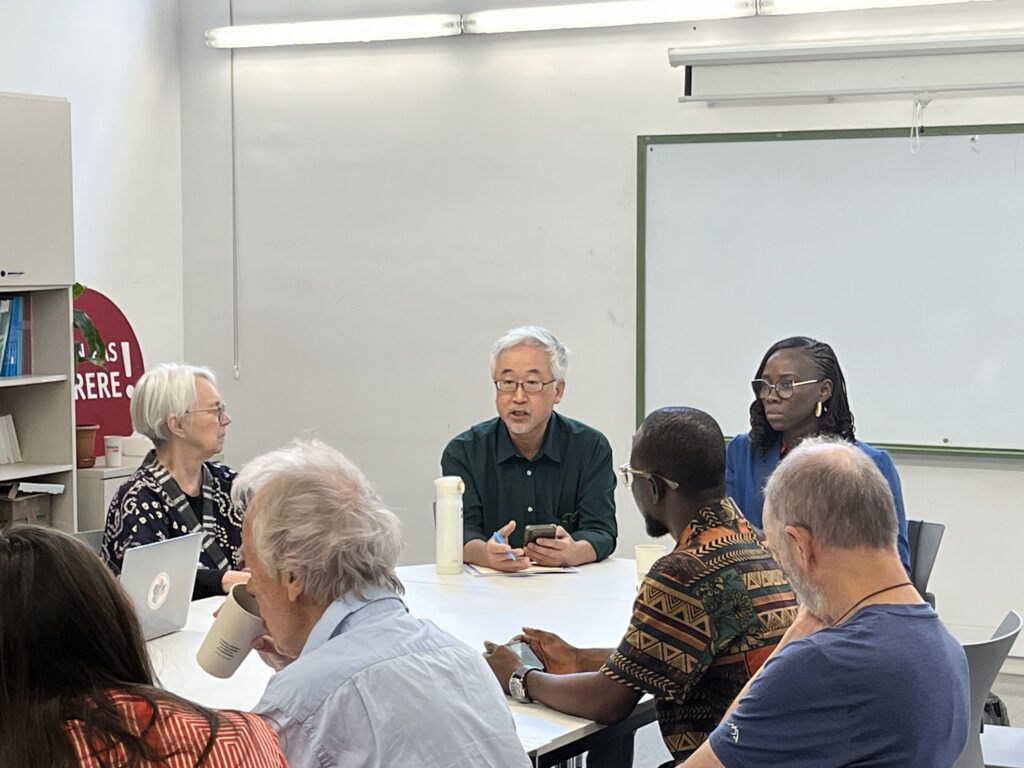


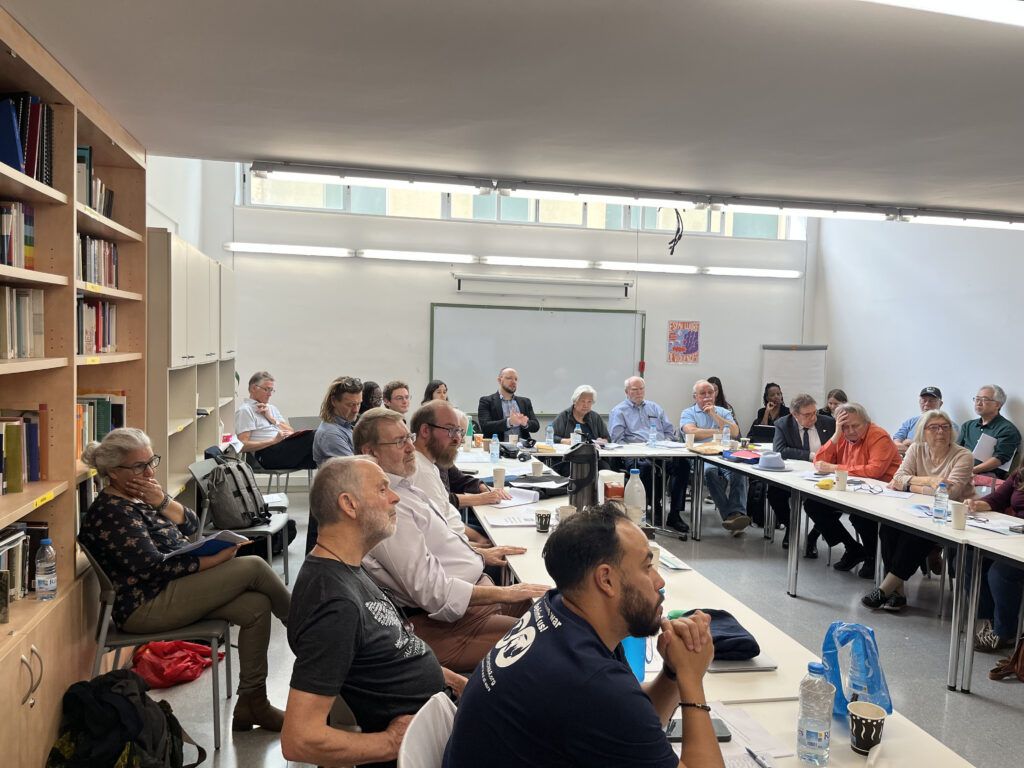

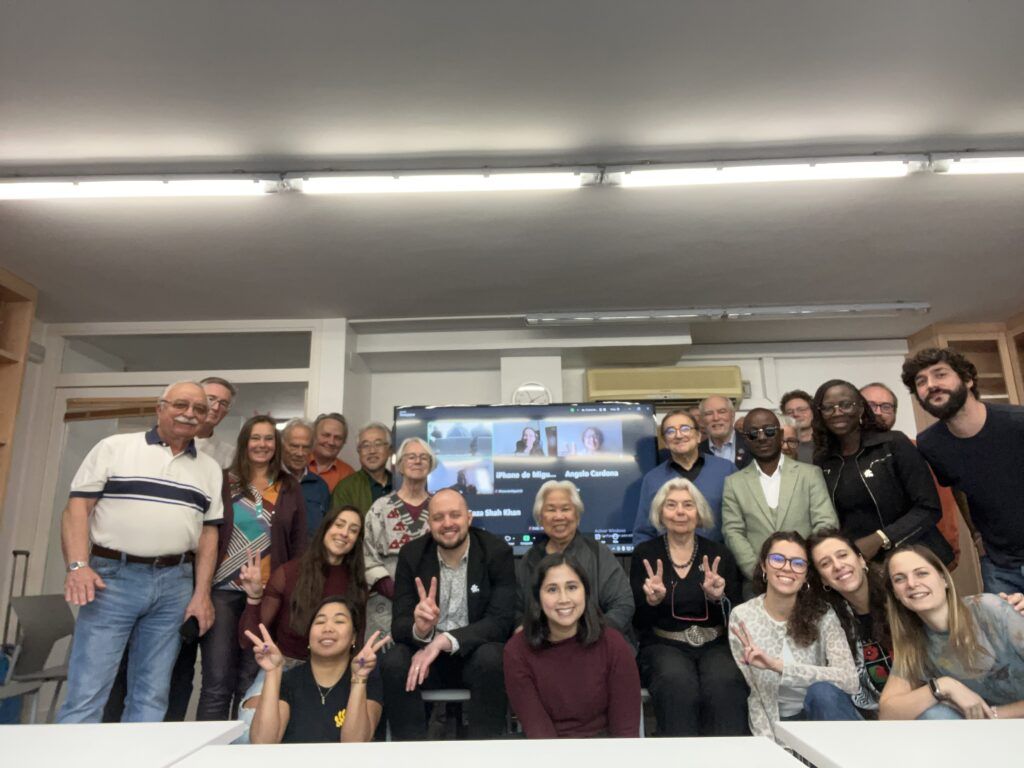
UNSILENCE FORUM
[Press Release: Act X Palestine]
With figures such as Youmna El Sayed and Wael Al Dahdouh, who were Al Jazeera’s voices in Gaza, paying an enormous personal price; lawyer Raji Sourani, who is leading the effort to bring the Israeli government before the International Criminal Court; and Iranian activist Sanam Naraghi-Anderlini.
The UNSILENCE FORUM brings to Barcelona a historic debate on the future of democracy and peace in the Euro-Mediterranean region
From 14 to 16 November, journalists, human rights defenders and activists from more than 20 countries will gather in Barcelona to think, create and resist in the face of genocides, occupations and rearmament, with first-hand testimonies from Gaza and across the region, in a unique gathering framed within the global call ACTxPALESTINE.
Continue reading “UNSILENCE FORUM”The International Peace Bureau Calls for Action to Protect Civilians in Darfur, Sudan
El Fashir, the last standing city in Darfur, Sudan, has fallen to the Rapid Support Forces (RSF). And civilians are facing mass humanitarian atrocities.
For more than 550 days, the city had been under siege, devastated by the systematic cut off of aid, food, and medicine. Thousands were killed through execution, bombardment, starvation & severe malnutrition. In two days, more than two thousand people have been killed. 460 patients and their families were massacred inside the Saudi Maternity Hospital, medical staff were abducted, and an estimated 180,000 people remain trapped inside with no safe passage out. While the Rapid Support Forces broadcast videos of their own crimes, parading victims, and committing documented executions. The world’s response to these atrocities has been shameful.
IPB Co-President Joseph Gerson stated:
“In pursuit of arms sales profits and Sudan’s resources, cynical forces have made medieval brutality possible. It must stop, and the people of Darfur must be permitted to rebuild their lives and futures without fear.”
The International Peace Bureau does not accept the status quo of brutal violence, mass murder, and dominance, and we stand with the people of Sudan. We recognise that the first, fastest responders are the local networks of volunteer medics, community kitchens, and emergency response rooms, who continue to provide lifesaving assistance despite the collapse of state protection. Supporting these actors is central to saving lives and affirming human dignity during this systemic and unacceptable violence.
The International Peace Bureau calls on citizens, media, and governments alike to keep Sudan and their work visible, to challenge indifference, and to sustain public pressure for a cease-fire and opening of unrestricted humanitarian corridors to all affected areas in Darfur.

